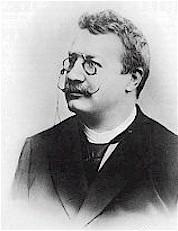
1823 - 1894 Person Name: Frank Bottome Author of "Bliss of the Purified" in The Male Chorus No. 1 Bottome, F., S.T.D., was born in Derbyshire, England, May 26, 1823. In 1850, having removed to America, he entered the ministry of the Methodist Episcopalian Church; and in 1872 he received the degree of S.T.D. from Dickinson's College, Carlisle, Penn. In addition to assisting in the compilation of B. P. Smith's Gospel Hymns, London, 1872: Centenary Singer, 1869; Hound Lake, 1872, he has written:—
1. Come, Holy Ghost, all sacred fire. Invocation of the Holy Spirit. Appeared in R. P. Smith's Gospel Hymns, 1872. It is in several collections, including the Ohio Hymn Book of the Evangelical Association, 1881, No. 364.
2. Full salvation, full salvation. Joy of full Salvation. Written in 1871, and published in a collection by Dr. Cullis of Boston, 1873. Also in the Ohio Hymn Book, 1881, No. 384.
3. Love of Jesus, all divine. Love of Jesus. Written in 1872, and published in his Hound Lake, 1872. It is in several collections.
4. O bliss of the purified, bliss of the free. Sanctification. Written in 1869, and published in the Revivalist, and numerous hymn-books in America, including the Ohio Hymn Book as above, 1881, No. 477, &c.
His hymns, "Sweet rest in Jesus"; and "Oneness in Jesus," are also found in several collections for evangelistic services.
-- John Julian, Dictionary of Hymnology (1907)
Francis Bottome


